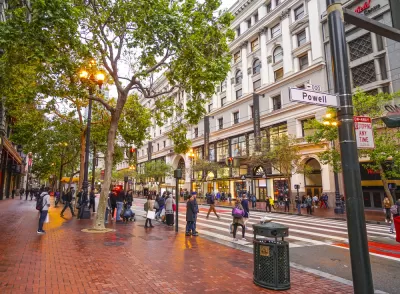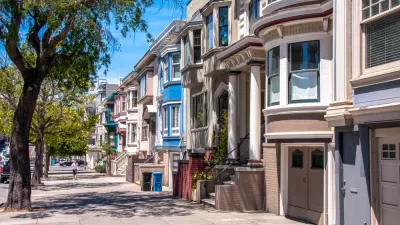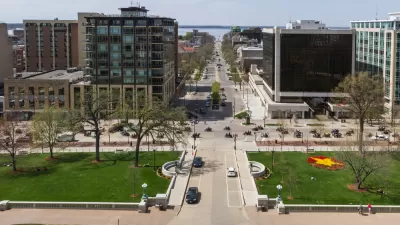State legislators are decrying the Board of Supervisors' decision to reject a proposal to build a 495-unit apartment building on a downtown San Francisco parking lot.

As California's housing crisis deepens, local decisions about density and development are being closely watched by housing advocates and legislators across the state. As Alexei Koseff reports, the rejection of a 495-unit housing development in San Francisco has brought fierce criticism from state legislators who want California to mandate higher density requirements to meet housing goals.
For some of the leading supporters of those efforts, the confusing collapse of the project in an alley near the corner of Sixth and Market streets — which San Francisco supervisors sent back to the drawing board after it won approval from the city Planning Commission, citing concerns about gentrification, shadows and seismic safety — is a stark example of why state intervention is not only necessary, but should escalate.
The development at 469 Stevenson would have replaced a surface parking lot with a 27-story tower housing 73 affordable units, a number that some Supervisors called inadequate. Supporters of the project argue that market-rate housing relieves pressure on the housing market and provides funding for affordable housing via the city's inclusionary housing program.
Some California legislators believe statewide mandates are crucial to easing the housing crunch and slowing the rise of housing costs in the state's major metropolitan areas, while others worry that urban centers like San Francisco are evading responsibility by rejecting projects like 469 Stevenson and focusing blame on single-family neighborhoods. In the last legislative session, the state passed multiple bills aimed at preventing cities from hindering new housing construction, incentivizing higher density, and eliminating single-family zoning that include a new 'Housing Accountability Unit' dedicated to enforcing housing production targets.
FULL STORY: Why state lawmakers are fired up over a derailed S.F. housing project

Planetizen Federal Action Tracker
A weekly monitor of how Trump’s orders and actions are impacting planners and planning in America.

Map: Where Senate Republicans Want to Sell Your Public Lands
For public land advocates, the Senate Republicans’ proposal to sell millions of acres of public land in the West is “the biggest fight of their careers.”

Restaurant Patios Were a Pandemic Win — Why Were They so Hard to Keep?
Social distancing requirements and changes in travel patterns prompted cities to pilot new uses for street and sidewalk space. Then it got complicated.

California Homeless Arrests, Citations Spike After Ruling
An investigation reveals that anti-homeless actions increased up to 500% after Grants Pass v. Johnson — even in cities claiming no policy change.

Albuquerque Route 66 Motels Become Affordable Housing
A $4 million city fund is incentivizing developers to breathe new life into derelict midcentury motels.

DC Area County Eliminates Bus Fares
Montgomery County joins a growing trend of making transit free.
Urban Design for Planners 1: Software Tools
This six-course series explores essential urban design concepts using open source software and equips planners with the tools they need to participate fully in the urban design process.
Planning for Universal Design
Learn the tools for implementing Universal Design in planning regulations.
Heyer Gruel & Associates PA
JM Goldson LLC
Custer County Colorado
City of Camden Redevelopment Agency
City of Astoria
Transportation Research & Education Center (TREC) at Portland State University
Camden Redevelopment Agency
City of Claremont
Municipality of Princeton (NJ)





























